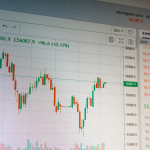BHP Billiton, now known simply as BHP Group, is one of the largest and most influential mining and resource companies in the world. It has a long-standing history of dominating global markets, especially in key sectors like iron ore, copper, coal, and petroleum. For investors looking at Australian stocks, BHP’s performance is a key consideration due to its market weight and significant role in the ASX (Australian Securities Exchange).
In this blog, we’ll dive deep into the BHP share price, its historical performance, key factors that affect its valuation, and whether it remains an attractive investment option for 2025.
Disclaimer
This article is for informational purposes only and should not be considered as financial advice. The information provided here is based on available data at the time of writing. Always consult a licensed financial advisor and perform your own due diligence before making any investment decisions. Investing in the stock market carries inherent risks, and it is important to evaluate your risk tolerance and financial goals.
A Quick Overview of BHP Group (ASX: BHP)
BHP Group is an Australian multinational corporation that was formed in 2001 through the merger of BHP Limited and Billiton. The company has an extensive portfolio of assets, including mines and oil fields, across more than 90 locations worldwide. BHP’s focus is on extracting and producing valuable raw materials that are essential to modern economies, including:
-
- Iron Ore: BHP is one of the largest producers of iron ore globally. It is a critical player in the iron ore market, which plays a vital role in steel production worldwide.
- Copper: The company also produces copper, a key material used in everything from construction to electronics.
- Coal: BHP mines thermal and metallurgical coal used in power generation and steel production.
- Oil and Gas: BHP has a significant presence in the oil and gas sector, with assets in Australia, the United States, and other regions.
BHP’s business operations are divided into four main segments:
- Petroleum
- Copper
- Iron Ore
- Coal
The company has a solid reputation for maintaining a sustainable approach to mining, emphasizing safety, environmental responsibility, and innovation. It also pays significant dividends to its shareholders, making it an attractive stock for income-focused investors.
BHP’s Share Price Performance: A Historical Perspective
The BHP share price has seen significant fluctuations over the years, driven by a variety of factors, including global demand for commodities, fluctuations in commodity prices, and broader economic conditions. Let’s take a look at some key points in its historical share price journey.
- Early Growth (2000s – 2010s): Following the merger of BHP and Billiton in 2001, the share price saw substantial growth as the company’s operations expanded globally, especially in iron ore and copper. During this period, the rise of China as an industrial powerhouse drove demand for raw materials, which helped push BHP’s prices upward.
- Global Financial Crisis (2008): Like many global companies, BHP’s share price suffered during the global financial crisis (GFC) of 2008. The crisis caused a significant drop in commodity prices, and the stock fell sharply. However, BHP was able to recover relatively quickly compared to other firms in the sector, due to its strong balance sheet and diversified portfolio.
- Commodity Boom (2010s): The period between 2009 and 2014 saw a commodities boom, as China continued its rapid industrialization and demand for resources remained high. BHP’s share price surged during this time, reaching its peak in 2014 when iron ore and copper prices were at high levels.
- Decline in Commodities (2015-2016): After 2014, the market saw a downturn in commodity prices, especially in iron ore and coal, which put downward pressure on BHP’s stock price. This period was marked by restructuring efforts and cost-cutting measures, as BHP sought to streamline operations and focus on more profitable sectors.
- Recovery and Sustainability Focus (2017 – Present): In the past few years, BHP’s share price has seen steady recovery, driven by a rise in demand for its key commodities and a commitment to sustainability and reducing carbon emissions. The company also made strategic moves, such as exiting oil and gas exploration and focusing more on clean energy solutions, including hydrogen and battery metals.
Factors That Affect BHP’s Share Price
Several key factors influence BHP’s share price, and it’s important for investors to stay informed about these factors to understand the stock’s movements and potential for growth.
- Commodity Prices: As a resource-based company, BHP’s share price is highly correlated with the prices of the commodities it produces. Fluctuations in the price of iron ore, copper, coal, and oil can have a significant impact on the company’s profitability and stock performance.
- Iron Ore: As the largest producer of iron ore globally, BHP’s earnings are highly sensitive to the price of iron ore, which is driven by global demand, especially from China.
- Copper: Copper prices are also a key driver, particularly with the global push for green technologies, such as electric vehicles and renewable energy infrastructure, which require large amounts of copper.
- Global Economic Conditions: The overall health of the global economy plays a big role in determining the demand for BHP’s resources. When global economies are booming, demand for commodities tends to rise, which benefits BHP. Conversely, during periods of economic slowdown or recession, demand for resources can fall, affecting the company’s performance.
- Environmental and Regulatory Factors: As a major mining company, BHP is subject to strict environmental regulations and community expectations. Any changes in regulations related to environmental protection, carbon emissions, or sustainability could impact the company’s operations and profitability.
- Geopolitical Events: BHP’s operations span across several countries, and geopolitical instability in regions where it operates can affect the company’s ability to maintain consistent production levels. Political instability, trade tariffs, or changes in government policies can have a direct impact on BHP’s business.
- Innovation and Investment: BHP has increasingly focused on investing in more sustainable practices and future-oriented projects, such as the development of battery minerals (e.g., nickel and lithium). Success in these areas can boost investor confidence and positively impact the stock price.
How to Track and Analyze BHP’s Share Price
Investors should follow several key steps to track BHP’s share price and assess its investment potential:
- Monitor BHP’s Earnings Reports: Quarterly earnings reports provide insight into the company’s performance, including revenue growth, profit margins, and forecasts. Strong earnings often correlate with a rising share price.
- Follow Commodity Markets: Stay updated on the prices of iron ore, copper, and other resources that BHP produces. A surge in these commodity prices often leads to a rise in BHP’s stock.
- Keep an Eye on Dividends: BHP is known for paying consistent and attractive dividends to its shareholders. Any changes in dividend policy can signal the company’s financial health, which in turn affects its stock price.
- Track Global Economic Trends: Be aware of global economic conditions and commodity market trends. BHP’s stock often moves in sync with these larger market shifts.
BHP Share Price Outlook for 2025
As of late 2023, BHP has shown resilience in the face of global market volatility, primarily driven by its strategic moves to diversify and its focus on sustainability. If demand for key commodities like copper and iron ore continues to rise, and BHP continues to innovate in green technologies, the share price could see continued growth in 2025.
However, potential risks include fluctuations in commodity prices, global economic uncertainty, and regulatory challenges. It’s essential for investors to keep these factors in mind when considering BHP as part of a diversified portfolio.
Conclusion
BHP Group is one of the most established companies in the Australian stock market and has a history of strong financial performance. While the share price has experienced its ups and downs, its diversified portfolio and market-leading position in key sectors like mining and energy make it a compelling option for many investors.
Before making any investment decisions, ensure that you conduct thorough research and consider your own financial situation and risk tolerance. Always seek professional advice if necessary, as investing in the stock market carries both risks and opportunities.
Disclaimer Reminder
The information provided in this article is for educational purposes only and does not constitute financial advice. Always conduct your own research or consult a licensed financial advisor before making any investment decisions.





